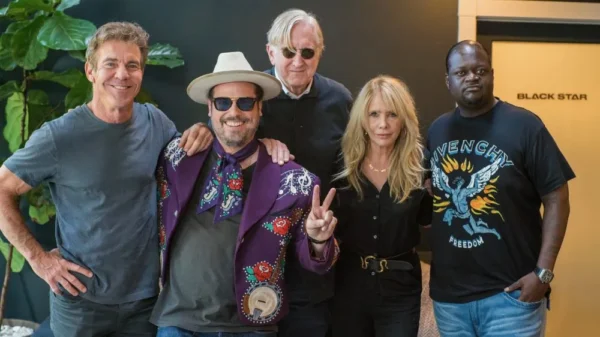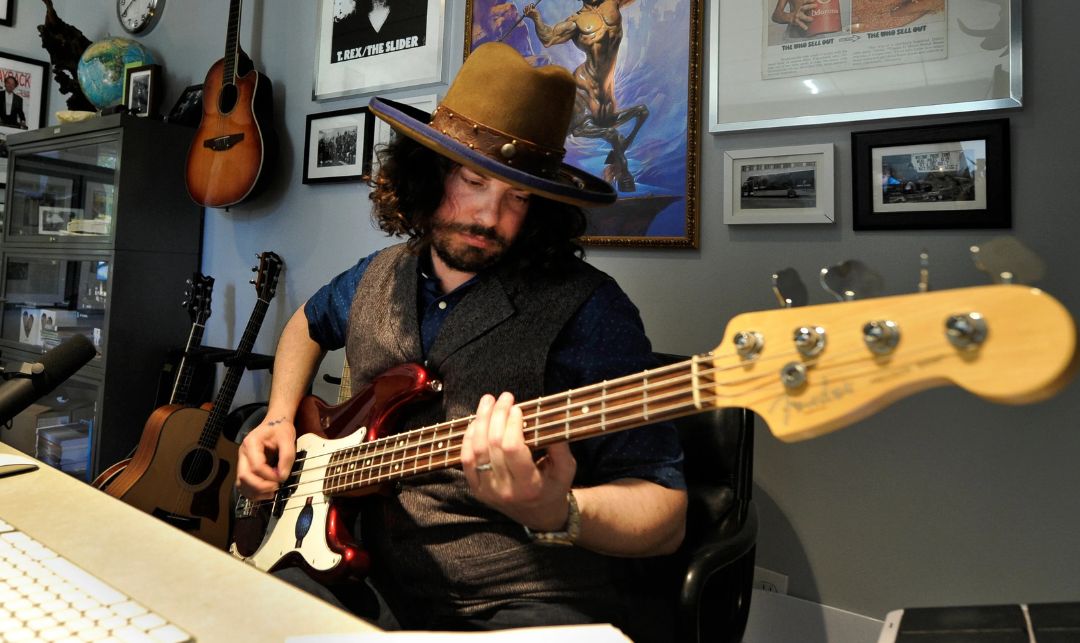In business, there’s one rule I live by: The first person to the patent office wins. Edison, Jobs, Dre, Iovine—their genius wasn’t in what they invented, but in how they protected it. That’s what turned their ideas into empires.
I took a simple, outdated business—music licensing—and introduced a layer of technology that reshaped how music was implemented, discovered, and distributed during the rise of unscripted television programming in the early 2000s.
The idea came when I was working as a TV editor and composer on Howard Stern’s show Wack Pack Bowling. I was asked to find music that captured the themes of Quentin Tarantino’s Reservoir Dogs for a bowling alley walk-up scene. It was a simple request, but I realized there wasn’t a tool to search for music by mood, tone, or cinematic reference.
Music discovery and placement for TV had become obsolete and didn’t match the pace or demand of unscripted programming. This pain point sparked what I call my “flux capacitor” moment—a moment of innovation that changed everything.
I quit my job that night and went home to draft the blueprint for what would become the Jingle Player—a patented technology that offered a searchable interface for targeted music selection and changed how music could be licensed and distributed for TV.

Jingle Jared, Poo Bear and T Bone Burnett. Photo credit: Joshua Woollen
Owning that patent meant anyone who wanted to mimic this idea would be shut out. Music licensing for TV and film was full of gatekeepers, backdoor deals, and other vulnerabilities. As others rushed into music licensing during the content boom, I had an exclusive technology that I could leverage in a rapidly growing space.
The Jingle Player enabled me to scale and create opportunities for millions of music creators, giving them access to placements across thousands of shows, films, and commercials. This period in television was called the “unscripted gold rush,” and Jingle Punks, the publishing company I founded around the technology, showed up with picks and shovels. Everyone would need music for their shows, and we were the best and cheapest option for this new medium.
Jingle Punks became the soundtrack for unscripted TV as the genre exploded in popularity. We provided music for more than 2,000 television shows, including The Voice, Pawn Stars, and The Real Housewives of Atlanta. This led to two successful exits for Jingle Punks—first to William Morris Endeavor/Silver Lake, and then later to the Ontario Teachers’ Pension Plan/Anthem Entertainment.

Gutstadt working for his podcast company, Audio Up
The thing people often miss about those exits is that they weren’t driven solely by the music or the invention—they were driven by the patent. The legal protection around the Jingle Player added an extra zero to Jingle Punks’ valuation and kept competitors out of our sandbox.
Investors don’t put money behind ideas or products that can be easily replicated—or worse, stolen. They look for things that are hard to copy and provide lasting value to everyday users.
The key is to own what you innovate. Protect your idea, and you’ll be surprised how fast its value grows. The most prominent inventors and entrepreneurs, like Bill Gates and Ray Dolby, owned deep patent portfolios for peace of mind. When your ideas are legally protected, you can create freely without having to look over your shoulder.
To this day, I drink my morning coffee out of a mug with my first patent filing printed on it. It’s my daily reminder that good things happen when you create and protect your ideas.
Whatever your “flux capacitor” moment is, don’t let it slip away. Write it down, map it out, and most importantly, file that patent early. Because the first person to the patent office usually wins.
Jared Gutstadt is the founder and CEO of Audio Up, a trailblazing entertainment company known for creating genre-defying podcasts, original music IP, and immersive audio storytelling.













































